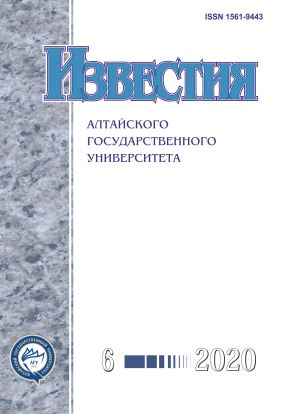Appeals to the Past in the Politics of «the Islamic State Caliphate»
УДК 94(5) ББК 63.3(5)6
Abstract
The paper focuses on the historical discourse produced by the “Caliphate of the Islamic State,” a quasi-state that existed from 2014 to 2017 and was created by a terrorist group (it was not recognized by any country in the world; in 2014 the Supreme Court of the Russian Federation banned its activities in Russia). Particular attention is paid to the ways, in which ideologists of the "caliphate" utilized their appeals to the early Islamic historical past in the processes of state-building, constructing “the hostile Other”, and shaping territorial identity of the quasi-state. Such appeals were employed to construct an ideal order to be strictly followed, to legitimize the dominant role the Islamic State’s ideologists as interpreters of this order and to mobilize one’s own group against “the hostile Other”. In the process of constructing the “ideal caliphate” of the past, ideologists took out of historical contexts both various features of those governmental systems that existed in different periods and markedly confrontational archaic practices of medieval Muslim states’ relations with the outside world.
Downloads
Metrics
References
Jones S. et al. Rolling Back the Islamic State // RAND Corporation. 2017. URL: https://www.rand.org/content/dam/rand/pubs/research_reports/RR1900/RR1912/RAND_RR1912.pdf
Репина Л.П. Историческая память и современная историография // Новая и новейшая история. 2004. № 5.
Соколова М.В. Что такое историческая память // Преподавание истории в школе. 16.03.2010. URL: http://pish.ru/blog/archives/142
ISIS Declares Islamic Caliphate, Appoints Abu Bakr Al-Baghdadi as ‘Caliph’, Declares All Muslims Must Pledge Allegiance to Him // The Middle East Media Research Institute, 1.07.2014. URL: https://www.memri.org/reports/isis-declares-islamic-caliphate-appoints-abu-bakr-al-baghdadi-caliph-declares-all-muslims
Краснов Ю.К. Феномен ДАИШ. Генезис, социальная база и цели Исламского государства // Публичное и частное право. 2016. № 2.
Федорченко А.В., Крылов А.В. Феномен «Исламского государства» // Вестник МГИМО-Университета. 2015. Т. 2, № 41.
Mishra P. How to Think about Islamic State // Guardian, 24.07.2015. URL: https://www.theguardian.com/books/2015/jul/24/how-to-think-about-islamic-state
Lewis B. The Political Language of Islam. Chicago; London, 1988.
McBride M. “Unforced Errors”: ISIS, the Baath Party, and the Reconciliation of the Religious and the Secular // Politics, Religion & Ideology. 2019. Vol. 20. № 2.
Hall J. The ISIS Map of the World: Militants Outline Chilling Five-Year Plan for Global Domination as They Declare Formation of Caliphate - and Change Their Name to the Islamic State // Daily Mail. 30.06.2014. URL: https://www.dailymail.co.uk/news/article-2674736/ISIS-militants-declare-formation-caliphate-Syria-Iraq-demand-Muslims-world-swear-allegiance.html.
Fedorov E. The Islamic State of Iraq and Al-Sham: The Group’s Nation-Building Project Through the Instrumental Use of Violence // McGill Journal of Political Studies. Winter 2016.
Crethi Plethi. ISIS’s Financial and Military Capabilities. 2015. URL: http://www.crethiplethi.com/isis-s-financial-and-military-capabilities/islamic-countries/syria-islamic-countries/2015.
Izvestiya of Altai State University is a golden publisher, as we allow self-archiving, but most importantly we are fully transparent about your rights.
Authors may present and discuss their findings ahead of publication: at biological or scientific conferences, on preprint servers, in public databases, and in blogs, wikis, tweets, and other informal communication channels.
Izvestiya of Altai State University allows authors to deposit manuscripts (currently under review or those for intended submission to Izvestiya of Altai State University) in non-commercial, pre-print servers such as ArXiv.
Authors who publish with this journal agree to the following terms:
- Authors retain copyright and grant the journal right of first publication with the work simultaneously licensed under a Creative Commons Attribution License (CC BY 4.0) that allows others to share the work with an acknowledgement of the work's authorship and initial publication in this journal.
- Authors are able to enter into separate, additional contractual arrangements for the non-exclusive distribution of the journal's published version of the work (e.g., post it to an institutional repository or publish it in a book), with an acknowledgement of its initial publication in this journal.
- Authors are permitted and encouraged to post their work online (e.g., in institutional repositories or on their website) prior to and during the submission process, as it can lead to productive exchanges, as well as earlier and greater citation of published work (See The Effect of Open Access).








